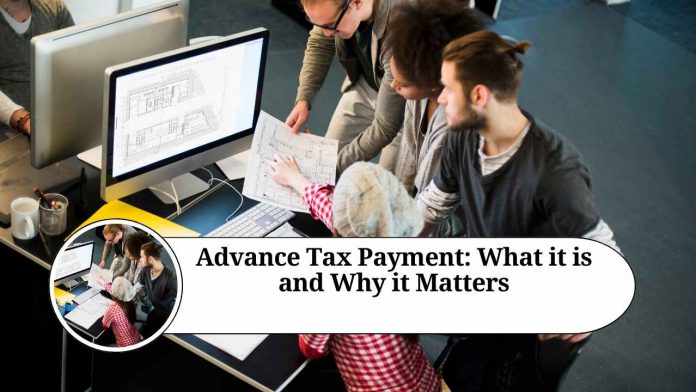As a taxpayer, you are required to pay your taxes on time to avoid penalties and interest charges. One way to ensure that you meet your tax obligations is to make advance tax payments. In this blog post, we will discuss what advance tax payment is, why it matters, and how to make these payments.
What is Advance Tax Payment?
Advance tax payment is a system of paying your taxes in installments throughout the year, rather than paying a lump sum at the end of the year. This system applies to individuals, companies, and organizations that have a tax liability of Rs. 10,000 or more in a financial year.
Under this system, taxpayers are required to estimate their total income for the year and pay a percentage of the tax due in advance. The payment is made in installments, with the first installment due on or before June 15th, the second installment due on or before September 15th, the third installment due on or before December 15th, and the final installment due on or before March 15th of the following year.
Why does Advance Tax Payment Matter?
Making advance tax payments is important for several reasons. Firstly, it helps taxpayers avoid penalties and interest charges for late payment. Secondly, it helps taxpayers manage their cash flow better by spreading out their tax payments over the year. Finally, it helps the government collect tax revenue throughout the year, rather than in a lump sum at the end of the year.
How to Make Advance Tax Payments?
There are several ways to make advance tax payments. Here are the most common methods:
- Online Payment: You can make advance tax payments online through the income tax department’s website. You can use net banking or a debit card to make the payment.
- Bank Challan: You can also make advance tax payments by submitting a bank challan at any authorized bank branch. The bank will provide you with a receipt, which you should keep for your records.
- Electronic Clearing Service (ECS): If you have a bank account with net banking facility, you can opt for the Electronic Clearing Service (ECS) to make advance tax payments. ECS allows you to authorize the bank to deduct the tax amount from your account on the due date.
- National Automated Clearing House (NACH): NACH is a facility that allows you to authorize your bank to deduct the tax amount from your account on the due date. You can set up NACH through your bank’s net banking portal.
In conclusion
Making advance tax payments is a smart way to manage your tax liabilities and avoid penalties and interest charges. By estimating your income and paying your taxes in installments throughout the year, you can ensure that you meet your tax obligations on time and avoid last-minute rush.
Frequently Asked Questions (FAQs)
What is advance tax payment?
Advance tax payment is a system of paying income tax in installments throughout the year, rather than paying a lump sum at the end of the year. It applies to taxpayers who have a tax liability of Rs. 10,000 or more in a financial year.
Who is required to pay advance tax?
Individuals, companies, and organizations who have a tax liability of Rs. 10,000 or more in a financial year are required to pay advance tax.
When are the advance tax payments due?
The advance tax payments are due in four installments throughout the year. The due dates are June 15th, September 15th, December 15th, and March 15th.
How is the advance tax payment calculated?
Taxpayers are required to estimate their total income for the year and calculate the tax due on it. They should then pay a percentage of the estimated tax liability in each installment.
What happens if I don’t pay advance tax?
If you don’t pay advance tax or pay less than the required amount, you may be charged a penalty and interest on the amount due.
Can I revise my advance tax payment?
Yes, you can revise your advance tax payment if you estimate your income incorrectly or there is a change in your income during the year.
How can I make advance tax payments?
You can make advance tax payments through the income tax department’s website, by submitting a bank challan at any authorized bank branch, by using the Electronic Clearing Service (ECS), or by setting up the National Automated Clearing House (NACH) facility.
Can I claim a refund if I overpaid my advance tax?
Yes, you can claim a refund if you overpaid your advance tax. You can file your income tax return and claim the refund for the excess amount paid.
What are the benefits of paying advance tax?
Paying advance tax helps you avoid penalties and interest charges for late payment. It also helps you manage your cash flow better by spreading out your tax payments over the year.
Is there any penalty for non-payment or delayed payment of advance tax?
Yes, there is a penalty for non-payment or delayed payment of advance tax. The penalty is charged at 1% per month on the amount of tax due, and it is calculated from the due date of the installment to the date of actual payment.




















